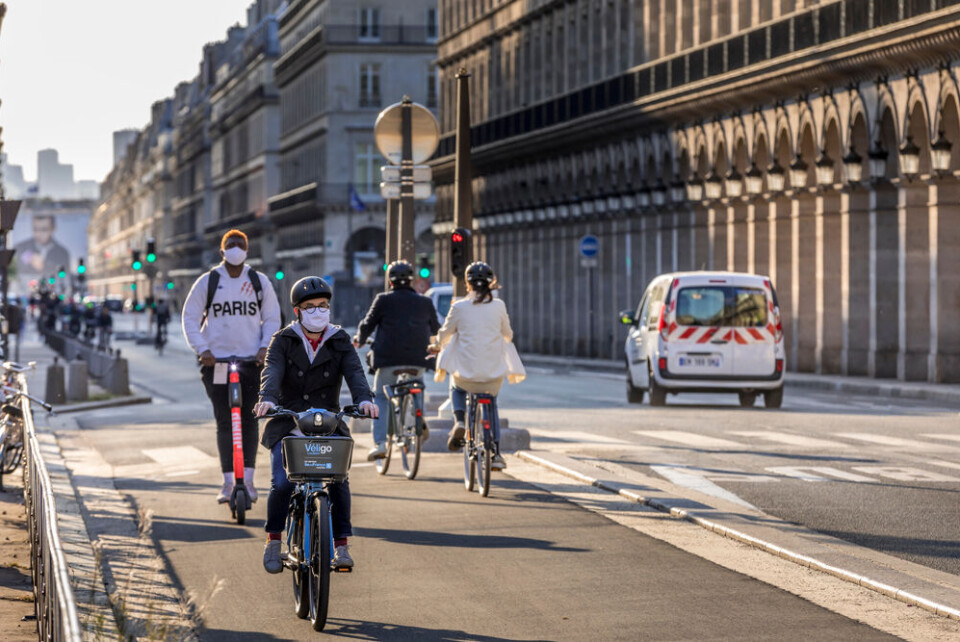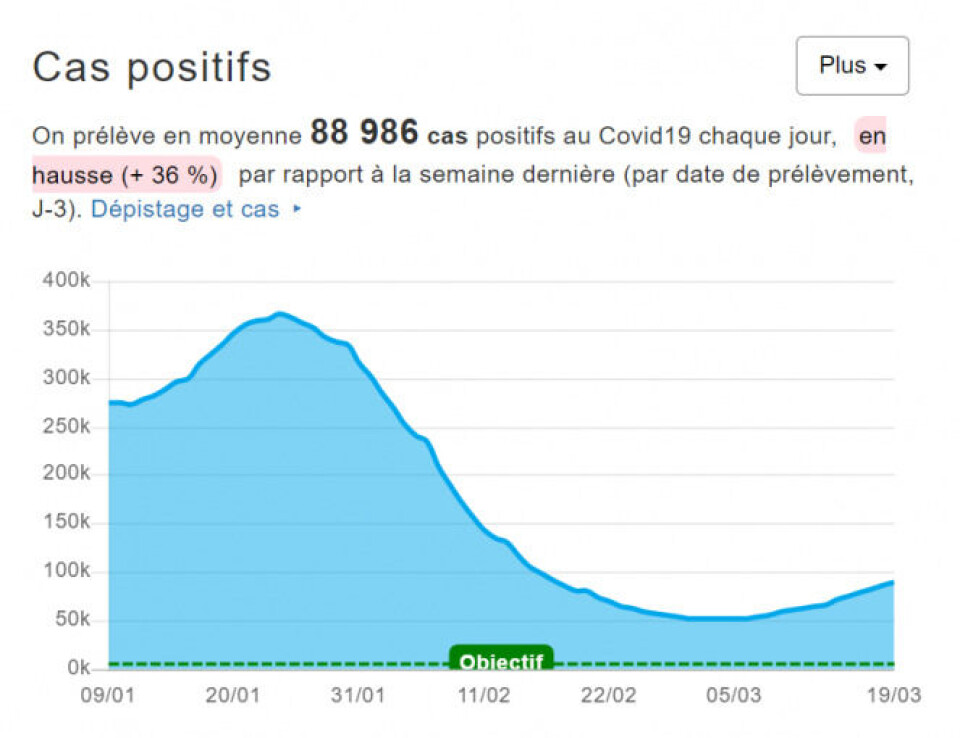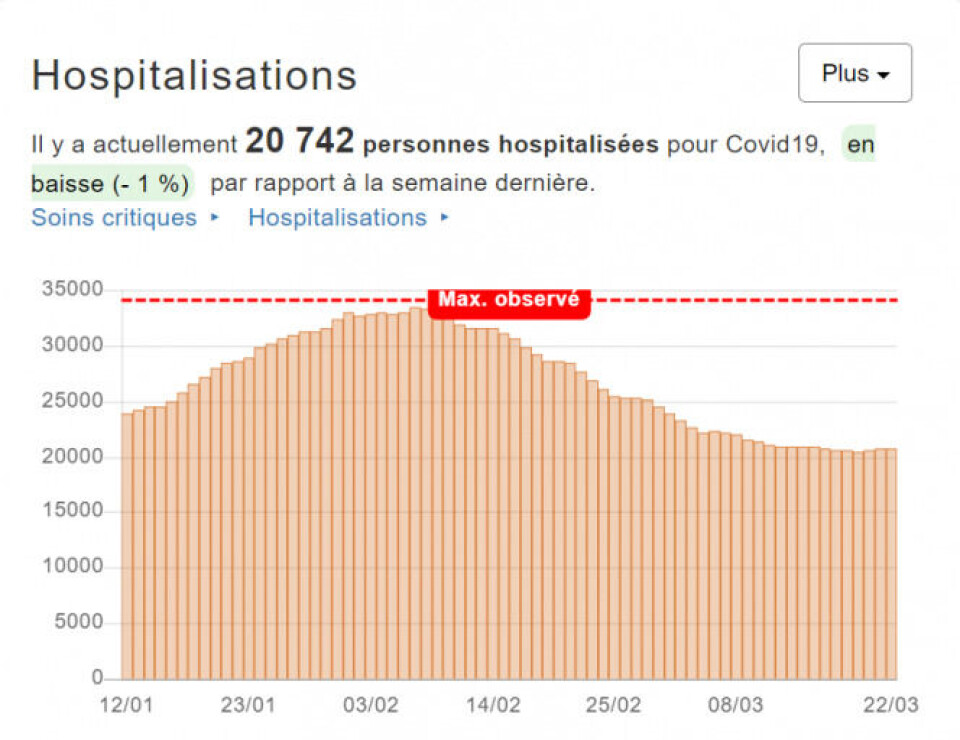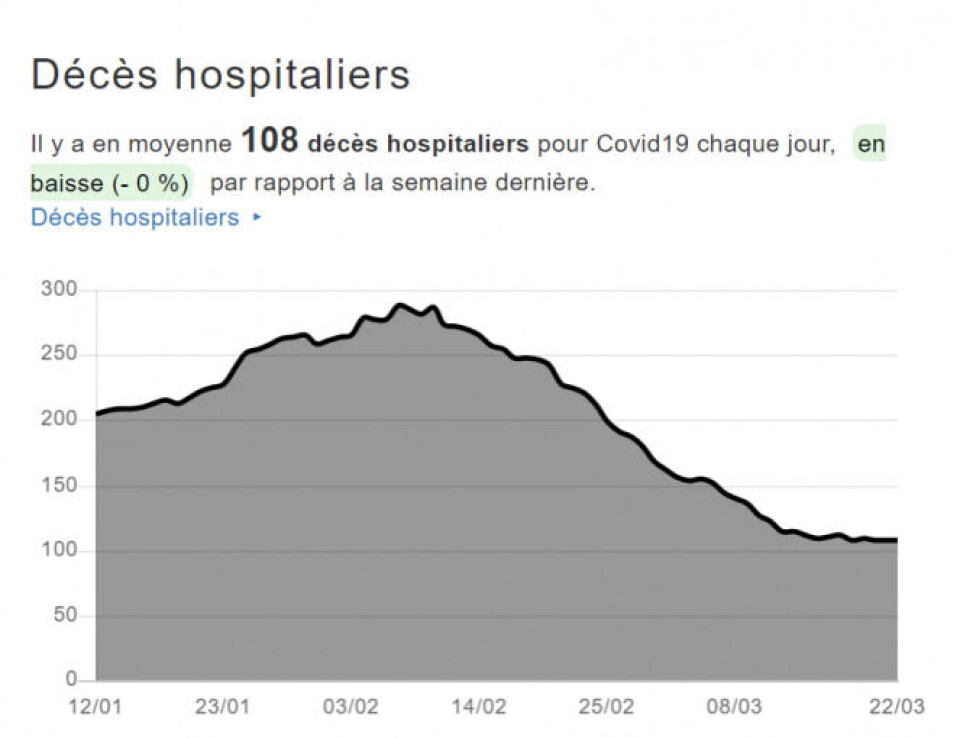-
Many Société Générale customers to be charged additional fees from April
There is some good news for international banking and instant transfers, however
-
Why gas prices in France are rising in April - and by how much
It comes after six consecutive monthly rises. Try these tips to reduce your bills
-
New notaire data suggests easing of Paris property crisis
Property experts have talked of ‘easing pressure’ and ‘breathing space’ after a four-year slump
French Covid cases rising, WHO says restrictions lifted too early
The World Health Organization says measures in European countries, such as France and the UK, were dropped too ‘abruptly’, going from ‘too many to too few’

Covid restrictions in several European countries, including France, were relaxed too suddenly, the director of the World Health Organization’s Europe region has said, saying that this is one reason behind rising cases around the continent.
Hans Kluge said yesterday (March 22) that over 5.1 million new Covid cases have been reported in Europe in the past seven days, and that 12,496 people have died.
“The countries where we see a particular increase are the UK, Ireland, Greece, Cyprus, France, Italy and Germany,” he said during a press conference in Moldova.
Health experts have also linked the rising case rates to diminishing immunity from vaccines and the higher transmission rate of Omicron and its BA.2 subvariant, which is said to be 30% more transmissible than the BA.1 strain of Omicron.
The BA.2 sub-variant is now the dominant strain of Covid spreading in France.
France began gradually relaxing Covid-related restrictions on February 2.
The latest easing on March 14 saw the country’s vaccine pass scheme end and the requirement to wear masks in most indoor public settings (excluding on public transport and in hospitals) dropped.
Read more: End of France’s vaccine pass: What changes for tourists and residents?
This came despite the fact that France did not meet certain Covid-linked objectives set out by the government on Feb 16.
The three criteria outlined were:
- Having fewer than 1,500 Covid patients in intensive care units
- Having an infection rate of 300-500 cases per 100,000 people
- Having an R rate (reflecting the average number of secondary infections produced by a single infected person) of less than 1
France has reported an average of 88,986 new Covid cases each over the past week, a 36% rise from the week before. The average number of daily cases has been increasing since March 5.
The current infection rate is 928 cases per 100,000 people (and rising).
The R rate is 1.26 and has been rising for several weeks.
The number of patients in ICUs is dropping but is still above the targeted 1,500, with 1,604 beds occupied as of March 22.
Hospital and intensive care unit admissions have remained relatively stable for the past couple of weeks.
Additionally, the number of people dying of Covid in hospital each day has levelled out at just over 100.
The graph below shows the evolution of the number of average daily cases in France.

The graph below shows the evolution of the number of people hospitalised with Covid.

The graph below shows the average number of people dying of Covid in hospitals each day.

All three graphs created by Covidtracker.fr
French health minister: ‘No need to bring back Covid restrictions’
The WHOs comments come just a couple of days after France’s health minister, Olivier Véran, said that there is “no need” to bring back restrictions, despite the rise in cases.
"For the past two days, the number of hospitalisations has not fallen,…[we expect] to see a rise in contaminations until the end of March, before a decrease in April,” he said on March 20, adding that it was not a sign to be worried about.
“The greatest risk is for the most fragile and the unvaccinated,” he said.
“This is why we are inviting them to wear their masks and have their booster vaccination.”
The fourth Covid vaccine dose is now available in France for the over-80s.
Read more: Fourth Covid vaccine dose now available in France for the over-80s
Mr Véran denied that the government’s lifting of Covid restrictions was an “electoral” policy timed to coincide with the presidential election campaigns.
He said: “Our only concern has always been the safety and health of people in France. If a new variant threatened us, we would act immediately, presidential election or not!
"If we had kept the measures, some would have denounced it as a means of maintaining a level of fear supposedly useful to the president. When we lift them, the same people tell us that it is ‘electoral’.”
The minister also compared French policies to those of some European countries, and said that even those with measures still in place are seeing rising cases due to the Omicron subvariant, BA.2, which is even more contagious than its predecessor.
He said: “Many of our neighbours are lifting their measures like us, but even countries like Italy, which is keeping the vaccination pass, is not spared either.”
Related stories
‘No need’ to bring back Covid rules in France despite rising cases
Coronavirus: Daily updates on the situation in France
























